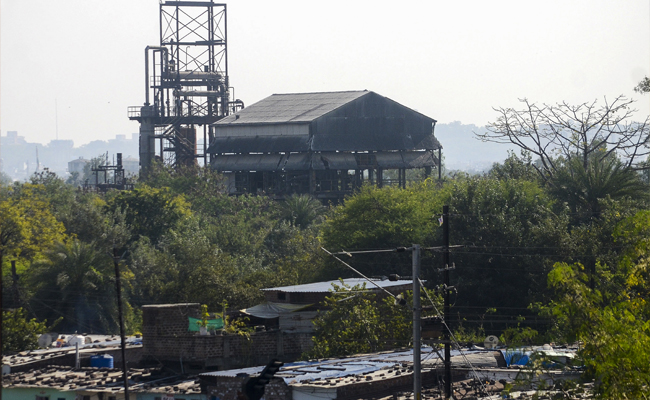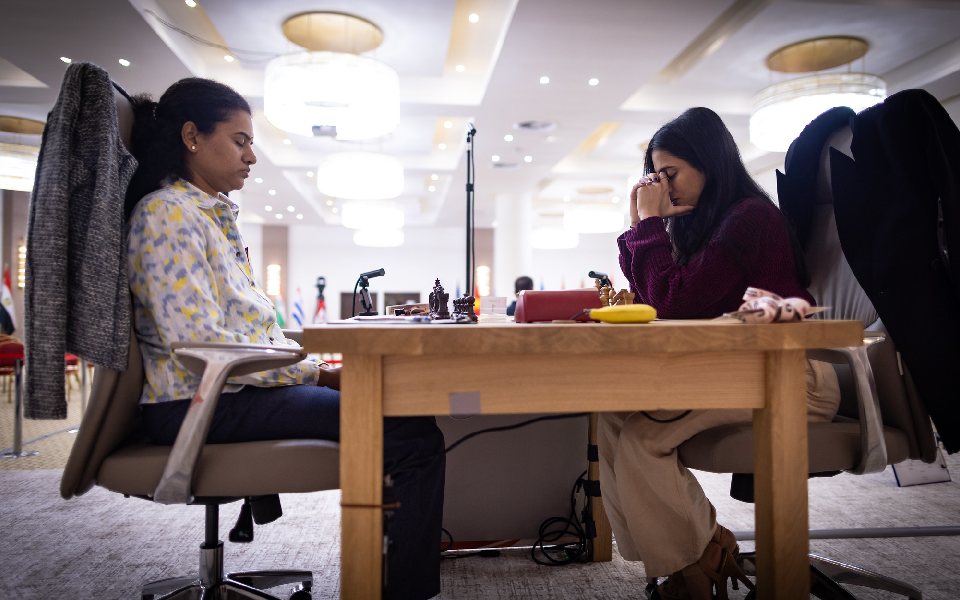Dhar/Indore (PTI): Preparations have begun to incinerate 10 tonnes of the 337 tonnes of Union Carbide waste on a trial basis in Madhya Pradesh’s Dhar district after the Supreme Court refused to intervene in the matter, officials said on Thursday.
Earlier in the day, the apex court declined to interfere with the Madhya Pradesh High Court order on shifting the waste linked with the 1984 Bhopal gas tragedy and disposing it of at Pithampur in Dhar district.
The apex court has asked aggrieved parties, including members of civil society organisations opposing waste disposal, to approach the high court, which is hearing the matter.
Following the SC’s order, the administration has stepped up security in the industrial town of Pithampur, an official said.
Nearly 500 cops from 24 police stations have been deployed in the area. Senior officials have also reached the spot, he said.
Those opposing the disposal of the waste said that they would knock on the doors of the HC. They said the SC listened to them and told them to present their case in the high court.
“Our lawyers have said they would present our case strongly in the HC. The movement will continue. We will talk to the people of Pithampur through our lawyers and take the movement forward in the way they tell us to do it,” said Sandeep Raghuvanshi, one of the protesters.
After the SC’s stand in the matter, Indore Division Commissioner Deepak Singh said, “Preparations have begun for the first trial of burning the waste of Union Carbide factory in Pithampur’s waste disposal unit.”
As per the HC order, 10 tonnes of the waste will be burnt in the first phase of this test, he told PTI.
On the intervening night of December 2 and 3, 1984, highly poisonous methyl isocyanate (MIC) gas leaked from the Union Carbide factory in Bhopal. At least 5,479 people were killed and thousands were crippled. It is considered one of the world’s biggest industrial disasters.
Officials transported 337 tonnes of waste from the defunct Union Carbide factory in the MP capital to a facility in Pithampur, about 250 km away, on January 2 as part of a plan to dispose of the material.
On January 6, the HC had directed the state government to take steps within six weeks to dispose of the waste by following safety guidelines.
Since this waste was brought to Pithampur, this industrial area has seen several protests. The protesters have expressed apprehensions about the harm to the human population and environment if the waste is incinerated there.
The state government says solid arrangements are in place in the Pithampur unit for the safe disposal of the Carbide waste.
The state government has also organised ‘Jan Samvad’ programmes in Pithampur and its surrounding places to spread awareness about the waste disposal process.
According to the state government, the waste includes soil from the now-shut Bhopal factory, reactor residue, Sevin (pesticide) residue, naphthal residue and “semi-processed” residue.
The State Pollution Control Board says that according to scientific evidence, the effect of Sevin and naphthal in this waste has now become “almost negligible”.
According to the pollution control board, there is no existence of methyl isocyanate gas or radioactive particles of any kind in this waste.
Let the Truth be known. If you read VB and like VB, please be a VB Supporter and Help us deliver the Truth to one and all.
Batumi (Georgia), Jul 26 (PTI): Young Indian International Master Divya Deshmukh held her nerves to hold stalwart Koneru Humpy to a draw in game 1 of the FIDE Women's World Cup final, with both players having their share of opportunities to take the lead here on Saturday.
The draw with black means Humpy, the two-time World Rapid champion, holds a slight edge going in the second and final game under the classical chess rules in the two-game mini-match, and should the deadlock continue, games of shorter duration will be played to determine the winner.
Humpy employed the Queen's gambit accepted as black and it turned out to be a pretty fascinating game right out of the opening as Divya, 19, came up with a piece sacrifice early to deny the black king the right to castle.
Humpy was the first to err and, according to computers, Divya had things under control on the 14th move. However in her bid to recover the extra material, the Nagpur girl, who has secured a place in the Candidates tournament with her sterling performance here, missed a promising continuation.
What followed the exchange of all minor pieces and the ensuing queen and rook endgame gave enough counter play to both players. The game was eventually drawn after Humpy sacrificed her rook to force perpetual checks.
"The game saw an extremely sharp battle with the game ending in a draw in 41 moves. On move 7, Divya made her aggressive intentions clear by offering another pawn,
which looked like home preparation. Humpy made a practical decision of refraining from taking the pawn and a balanced position was reached by move 10 by white," said Grandmaster Pravin Thipsay, an Arjuna awardee and the first Indian to get a chess Grandmaster norm.
"However, instead of developing the undeveloped Knight, Humpy retreated the centralised Knight on move 10, giving huge positional advantage to Divya. Divya could have gained huge positional advantage on the 12th move by moving a rook. However, she chose to play for King side attack by sacrificing a piece instead.
"Humpy, too, erred at this stage and instead of moving the King to Queen side, moved it to the King side. Divya, on move 14, could have obtained a crushing attack by threatening a mate by developing her Queen. Instead she chose to exchange a pair of Bishops first, which enabled Humpy to defend her King by returning the piece," said Thipsay.
"Players thus reached a balanced Queen and two Rooks ending. Divya continued to play ambitiously and tried to attack Humpy’s King but the latter defended accurately and the game was drawn in 41 moves by perpetual check," he added.
In the play-off for the third place, Chinese players Zhongyi Tan, the former women's world champion and top seed Lei Tingjie also decided to split points out of a Queen’s gambit declined game.
The opening raised visions of a close contest between the two but having been knocked out of title race in the previous round, none of them wanted to take any huge risk. It was still a middle game when the players shook hands.
With the top two positions sealed for the Indians, the berth to the next Candidates is also assigned, while the player finishing third will also get an entry to the premier event scheduled for 2026.
Results: Divya Deshmukh (Ind) drew with Koneru Humpy (Ind); Zhongyi Tan (Chn) drew with Tingjie Lei (Chn).





